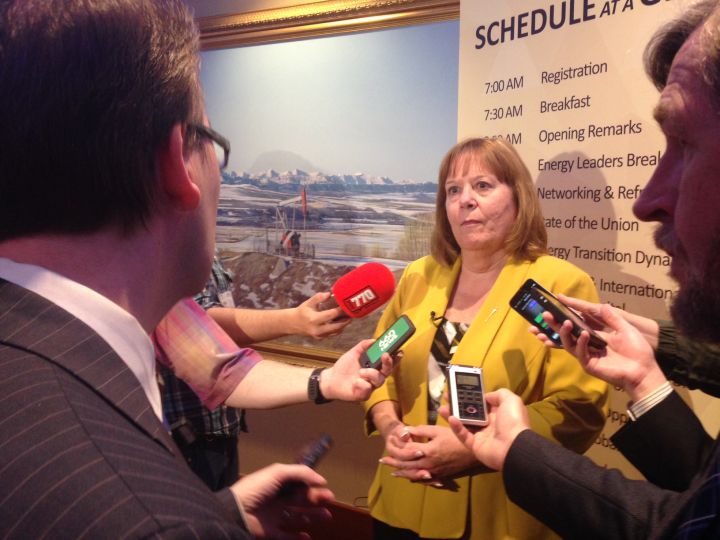Alberta Energy Minister Marg McCuaig-Boyd says the province’s oil and gas industry remains competitive after the adoption of a carbon tax.

The levy, to take effect Jan. 1, is one element of a climate-change strategy intended to reduce Alberta’s carbon footprint and is expected to bring in $3 billion in 2017-18.
The government has promised the proceeds will be used entirely for initiatives to help Alberta become more environmentally friendly — from small home-based changes to multibillion-dollar public transportation projects.
McCuaig-Boyd, who spoke before the Global Petroleum Show in Calgary, was also asked about Vancouver Mayor Gregor Robertson’s trip to Ottawa this week to demand the federal government reject the Trans Mountain expansion.
READ MORE – Tough times in Alberta’s oilpatch reflected at Global Petroleum Show
She would only say he is entitled to his opinion.
The National Energy Board has conditionally approved the pipeline, and the Liberal government has promised a final decision by mid-December.
READ MORE – Vancouver vs. Calgary: mayoral dust-up over pipeline expansion
The $6.8-billion project would almost triple the amount of oil shipped from Alberta to an export terminal in B.C.’s Burrard Inlet.
The Alberta government considers the project an important component in getting more oil to world markets, where it may fetch higher prices.
Gasoline at the pumps will rise by 4.49 cents a litre and diesel will go up 5.35 cents a litre.
The government is also working to cap oilsands emissions and phase out coal-fired electricity by 2030.

Comments